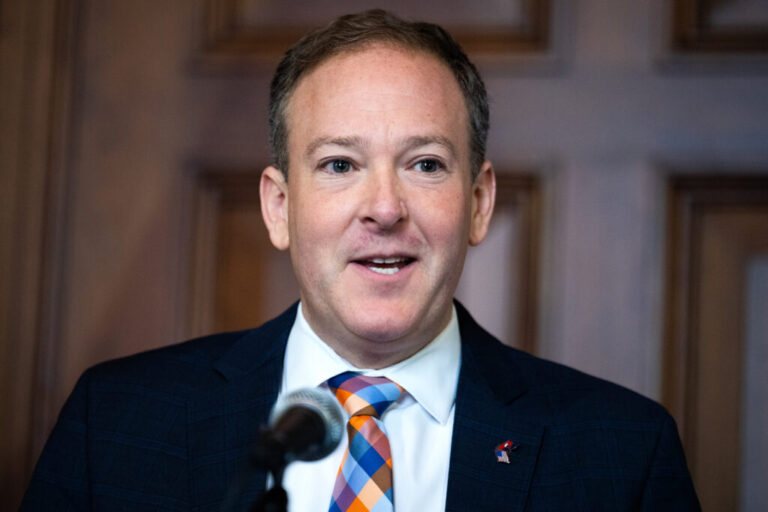EPA Administrator Defends Cancellation of Clean Energy Grants Amid Legal Challenges
In a press briefing on Monday, EPA Administrator Lee Zeldin addressed the controversial decision to cancel billions in federal clean energy and environmental justice grants, arguing that the agency has the legal authority to terminate these awards. This assertion comes in the wake of a federal court ruling that scrutinized the legal foundations of the cancellations.
Grant Cancellations Explained
The funds in question pertain to the $27 billion Greenhouse Gas Reduction Fund (GGRF) established by the Inflation Reduction Act, aimed at enhancing clean energy lending and community investments. Earlier this year, Zeldin’s agency annulled eight significant grant awards due to alleged conflicts of interest and misalignment with EPA objectives. One notable grant cancellation involved a nonprofit organization previously linked to Stacey Abrams, a figure denounced by former President Donald Trump, who claimed that the nonprofit’s leadership posed a conflict of interest.
Judicial Scrutiny of EPA’s Actions
A recent opinion by U.S. District Judge Tanya S. Chutkan placed the EPA’s decision-making process under harsh scrutiny. The judge expressed concern that the agency had not provided credible evidence of fraud or regulatory violations. “The EPA has acted arbitrarily and capriciously in terminating these grants,” Chutkan stated, emphasizing the importance of adherence to legal and regulatory standards in grant management.
Response from the EPA Administrator
During the press conference, Zeldin countered the court’s criticism, insisting that the cancellations were legally justified and that the dispute should be handled in the Court of Federal Claims. He described this situation as a contract issue without violating any statutory authority. Zeldin’s focus was on preventing wasteful expenditure of taxpayer dollars, asserting that the grant terminations were made for various substantive reasons.
Impact of Termination on Clean Energy Initiatives
The cancellation of these funds has caused significant delays in implementing critical GGRF initiatives like the National Clean Investment Fund and the Clean Communities Investment Accelerator. These projects were intended to channel substantial resources into community lenders and disadvantaged areas, positioning these locales for enhanced clean energy development. The abrupt termination instigated by the EPA has disrupted numerous ongoing clean energy projects across the nation.
Criticism and Backlash from Advocacy Groups
In reaction to the canceled grants, KD Chavez, the executive director of the Climate Justice Alliance, condemned the EPA’s actions as detrimental to working-class communities and a betrayal of environmental justice principles. The group criticized the Biden administration for delaying the disbursement of grant funds and expressed concern about the implications for communities dependent on these investments.
Future Directions and Regulatory Reforms
Looking ahead, Zeldin confirmed that the EPA is reevaluating its regulatory framework, particularly the “Waters of the United States” rule, in light of a recent Supreme Court decision. In addition to regulatory changes, he pointed out the agency’s plan for operational reforms, including reducing its real estate footprint and leveraging AI technologies to improve grant oversight and processing efficiencies.
While Zeldin maintains that the EPA’s initiatives align with maintaining environmental accountability, critics warn that the abrupt cancellations could undermine public trust and violate the EPA’s statutory obligations. The preliminary injunction resulting from the court’s ruling remains in effect as the legal proceedings continue to unfold.
